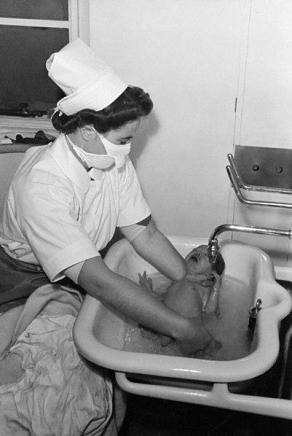- Managing your Practice
-
- Your Benefits
-

Introducing the ultimate Club MD experience
From work to play, and everything in between, we provide you with access to hundreds of deals from recognizable, best-in-class brands, elevating every facet of your life – from practice supports to entertainment, restaurants, electronics, travel, health and wellness, and more. Your Club MD membership ensures that these deals are exclusive to you, eliminating the need to search or negotiate.
Welcome to the ultimate Club MD experience. Your membership, your choices, your journey.
-
- Advocacy & Policy
-
- Collaboration
- News & Events
-

Stay Informed
Stay up to date with important information that impacts the profession and your practice. Doctors of BC provides a range of newsletters that target areas of interest to you.
Subscribe to the President's Letter
Subscribe to Newsletters
-
- About Us
-

Virtual care – how will it change the way we practice?
June 22, 2020
President's Blog
“Don’t throw the baby out with the bath water”.

Many of us may have been taught that this phrase referred to the medieval practice of bathing the baby last in the family, in water so dark the baby was in danger of being lost. But the real meaning of this German proverb, coined by author Thomas Murner in the 1500s, is a little different and was actually meant to depict the care needed when discarding old practices— to not also discard those that may still hold value. This proverb, like so many others, was meant to share common wisdom using simple, memorable analogies.
Lately, I have been reflecting on our evolving clinical and professional experiences during the initial pandemic phase. How many of our previous practices were the bath water (discarding old practices for new ways of doing things), and how many were the baby (things we hold on to because they continue to hold value)?
Benefits of virtual care
Many beliefs I once held as sacrosanct have now “gone out the window” - another old phrase from the early 1900s, a time where unwanted items where literally hurled out the window. Our rapid shift to virtual care has eliminated much of the hands-on, in-person care I used to provide for my patients. I miss that connection, but the shift was necessary to limit exposure, preserve personal protective equipment, and ensure patients had access to necessary care. As pandemic regulations are gradually lifting, physician offices are slowly ramping back up, bringing more patients to the office for direct care. I can sense the bath water beginning to accumulate in the tub.
 Let’s hold there for a moment, and take a look at the “silver linings” of virtual care, another proverb, this one coined by John Milton in the 1600s. Right now patients have easier access to their medical professional through a host of modalities as needed (including my still-sacrosanct hands-on care model).
Let’s hold there for a moment, and take a look at the “silver linings” of virtual care, another proverb, this one coined by John Milton in the 1600s. Right now patients have easier access to their medical professional through a host of modalities as needed (including my still-sacrosanct hands-on care model).
Patients experience less travel time, less downtime from work, and the ability to easily pull other support people into the virtual conversation. Less time is spent dropping off prescriptions and waiting in crowded pharmacies for medications to be filled, along with fewer lost laboratory and imaging requisitions, which are now directly faxed to facilities.
Our outpatient laboratory waiting rooms are devoid of the usual 25 people clutching numbers, standing cheek to jowl waiting their turn. This radical overhaul could not have been accomplished without the nimble cooperation of our governing bodies who supported the rapid shift in physician practices and payment models. Yet we know that these models are - to date - only being supported in a temporary fashion.
The importance of longitudinal care
 As I continue on with my theme, allow me to consider this perspective of the baby in the bath water we want to save. Longitudinal primary care provided by a single provider, or designated team of providers, and longitudinal consultative care provided by a single consultant, or designated team, is the baby we want to preserve. Virtual access to a pre-admission clinic, treatment follow-up, or even initial consultant triage and assessment to improve access time, are also babies we must protect. In the background of our virtual care evolution are some larger corporate platforms gaining steam as stand-alone entities. Patients have rapid access to medical care literally in the palm of their hands. While this convenience definitely mimics the silver linings I mention above, as we cast away the bathwater of our previous practices, how do we protect the baby?
As I continue on with my theme, allow me to consider this perspective of the baby in the bath water we want to save. Longitudinal primary care provided by a single provider, or designated team of providers, and longitudinal consultative care provided by a single consultant, or designated team, is the baby we want to preserve. Virtual access to a pre-admission clinic, treatment follow-up, or even initial consultant triage and assessment to improve access time, are also babies we must protect. In the background of our virtual care evolution are some larger corporate platforms gaining steam as stand-alone entities. Patients have rapid access to medical care literally in the palm of their hands. While this convenience definitely mimics the silver linings I mention above, as we cast away the bathwater of our previous practices, how do we protect the baby?
Our medical profession recognizes that we are in this pandemic for another 18 to 24 months, even with the advent of a vaccine or effective treatment.
We will continue to modify and evolve to meet the needs of patients.
We will need to take inventory.
We will need to continue models of payment that support the practices most valuable to our patients, our physicians, and the sustainability of our healthcare system.
We will need to consider a hybrid approach – both virtual and in-person care practice models.
While virtual care moves toward the mainstream of medicine, let’s not forget the foundation of primary care is about relationships with our patients. This truth means we must preserve longitudinal care as the foundation of the way we practice. Back to that proverb – when it comes to primary care, we do not want to see this baby floating away with the discarded bath water.
- Dr Kathleen Ross




